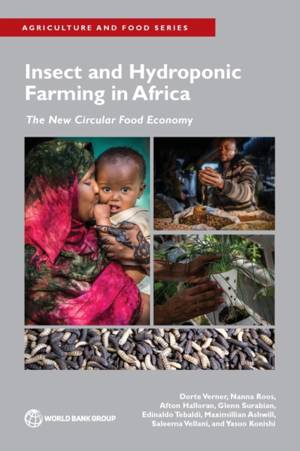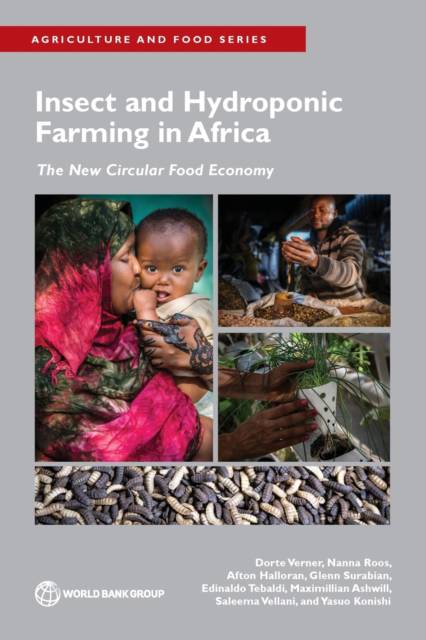
- Retrait gratuit dans votre magasin Club
- 7.000.000 titres dans notre catalogue
- Payer en toute sécurité
- Toujours un magasin près de chez vous
- Retrait gratuit dans votre magasin Club
- 7.000.0000 titres dans notre catalogue
- Payer en toute sécurité
- Toujours un magasin près de chez vous
Insect and Hydroponic Farming in Africa
The New Circular Food Economy
Dorte Verner, Nanna Roos, Afton Halloran, Glenn Surabian, Edinaldo Tebaldi, Maximillian Ashwill, Saleema Vellani, Yasuo Konishi
86,95 €
+ 173 points
Description
While current agri-food production models rely on abundant supplies of water, energy, and arable land past practices point toward more affordable and sustainable paths. Different forms of insect farming and soilless crop farming, or hydroponics, have existed for centuries. In this report, the authors make a persuasive case that frontier agriculture, particularly insect and hydroponic farming, can complement conventional agriculture. As the report shows, insect and hydroponic farming can create jobs, diversify livelihoods, improve nutrition, and provide many other benefits in African and fragile, conflictaffected countries. Together with other investments in climate-smart agriculture, these technologies are part of a promising menu of solutions that can help countries move their land, food, water, and agriculture systems toward greater sustainability. This book is the World Bank's first attempt to look at insect and hydroponic farming as possible solutions to the world's climate and food and nutrition security crisis and may represent a new chapter in the Bank's evolving efforts to help feed and sustain the planet.
Spécifications
Parties prenantes
- Auteur(s) :
- Editeur:
Contenu
- Nombre de pages :
- 280
- Langue:
- Anglais
- Collection :
Caractéristiques
- EAN:
- 9781464817663
- Date de parution :
- 17-12-21
- Format:
- Livre broché
- Format numérique:
- Trade paperback (VS)
- Dimensions :
- 152 mm x 226 mm
- Poids :
- 521 g

Les avis
Nous publions uniquement les avis qui respectent les conditions requises. Consultez nos conditions pour les avis.






